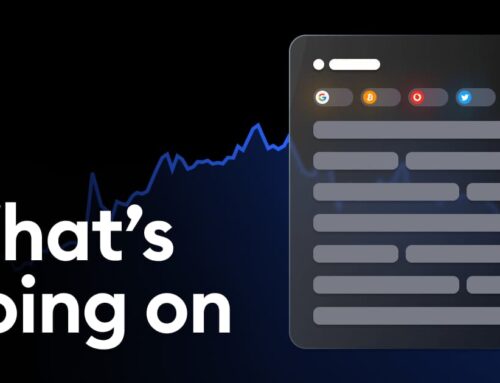Warren Buffett Sold Over $134 Billion Worth of Stock in 2024, But His Most Recent $200 Million in Purchases Are Sending a Clear Message to Investors @themotleyfool #stocks $BRK.B $BRK.A $VRSN $SIRI
January 26, 2025
Buffett is sending a warning to investors, but make sure you understand what his purchases are saying.
Warren Buffett is one of the most widely respected investment managers in the world. His track record, dating all the way back to the 1950s, is hard to argue with. As the manager of Buffett Limited Partnership, he produced compound annual returns over 25% for investors. And since taking over Berkshire Hathaway (BRK.A 0.75%) (BRK.B 0.73%) in 1965, he’s produced a compound annual return of 20% over the last 59-and-a-half years.
Despite Berkshire shares rising 25.5% in 2024, beating the S&P 500, the stock might have performed even better if Buffett made a few different investment decisions. Specifically, Buffett oversaw the sale of at least $134 billion worth of equities in 2024, and that’s before the final tally for the fourth quarter (Q4) was known. Meanwhile, Buffett’s stock purchases for the first nine months of the year came to a total of just $5.8 billion.
Many see Buffett’s massive stock sales as a warning to investors that stocks are overpriced right now. But there’s a clear reason why Buffett’s stock sales have completely dwarfed his purchases recently. Buffett once again pointed to the area of the market where he feels there’s great value with some of his most recent purchases. In particular, he bought shares in two companies — purchases which totaled about $200 million in late December and early January. Here’s the real message investors should take away from Berkshire’s 2024.

Image source: The Motley Fool.
Buffett’s most recent investments
Between Dec. 17 and Jan. 3, Buffett and his team of investment managers at Berkshire Hathaway made several investments. We know about them because the company had to file a disclosure with the Security and Exchange Commission (SEC) as a greater-than-10% shareholder. Here are the purchases and how much Berkshire paid:
- 8.9 million shares of Occidental Petroleum ($409 million).
- 5 million shares of Sirius XM (SIRI -0.77%) ($107 million).
- 474 thousand shares of Verisign (VRSN 1.97%) ($94 million).
Berkshire owns preferred shares of Occidental Petroleum with warrants to buy the common stock at $59.62. Occidental is slowly retiring those shares and warrants, so it’s kind of a surprise Berkshire Hathaway isn’t buying more shares at prices below that level.
The other two purchases, Sirius XM and Verisign, point to a much broader pattern of purchases for Berkshire Hathaway in 2024. Specifically, they’re not particularly big companies. Sirius XM has a market cap of $7.5 billion as of this writing. Verisign’s worth just over $20 billion. And that might be why Berkshire was only able to snatch up $200 million worth of the shares in the open market recently. The company might have wanted to buy more but couldn’t.
It’s worth pointing out Verisign’s share price increased 5.3% over the course of Berkshire’s purchases while the S&P 500 fell 2.2% during that period. The combination of Berkshire’s buying volume propping up the price and its disclosure creating investor excitement around the name likely contributed to the considerable outperformance of the shares.
The big challenge facing Warren Buffett and Berkshire Hathaway
Earlier in the year, Buffett bought shares of Domino’s Pizza ($15 billion market cap), Pool Corp ($13.5 billion), and Heico ($29 billion). Even Occidental only has a market cap of $47 billion.
The fact that Buffett sees more value in smaller companies’ stocks presents a challenge for him and Berkshire Hathaway. If Buffett decides to sell Apple, he can easily liquidate $75 billion worth of the $3 trillion-plus company. He did just that in Q2 last year. But finding a suitable stock to reinvest that $75 billion is an impossible task.
Buffett warned investors of the situation at the start of the year in his letter to shareholders:
There remain only a handful of companies in this country capable of truly moving the needle at Berkshire, and they have been endlessly picked over by us and by others. Some we can value; some we can’t. And, if we can, they have to be attractively priced.
At this point, the largest companies in the market aren’t very attractive from a valuation standpoint. The “Magnificent Seven” are currently the seven largest companies by market cap. They have a combined forward price-to-earnings (PE) ratio of 29.8. The biggest banks in the world have seen their price-to-tangible book value climb significantly higher over the last 18 months, which led Buffett to start selling Berkshire’s Bank of America stake. Buffett even stopped buying back Berkshire Hathaway shares in Q3, implying he sees his own company’s stock as overvalued.
Smaller companies, on the other hand, can still present great value. Sirius XM, for example, trades for 7.4 times analysts’ consensus estimate for 2025 earnings. Verisign and Domino’s trade for about 24 times forward earnings. And if you look at even smaller companies, many trade for even better valuations. The S&P 400 mid-cap index has an aggregate forward PE of 16.3 as of this writing. The small-cap S&P 600 trades for 15.8 times forward earnings.
The problem for Berkshire Hathaway is that it can only buy so much of a small- or mid-cap company without moving the market. An individual investor, on the other hand, can probably buy as much of these companies’ stocks as they want.
The clear message investors should take away
Warren Buffett’s massive stock sales and minimal purchases in 2024 aren’t a warning to investors to get out of stocks as quickly as they can. It’s much more subtle. Investors just need to be more diligent about valuing the stocks they buy, and more and more of the good values in the market are smaller companies.
That’s not too surprising. Stock market concentration reached unprecedented levels at the end of 2024, as the biggest companies got bigger, leaving the rest of the market behind. But as earnings multiples for large-cap stocks have expanded over the last few years, investors haven’t extended the same multiple expansion to smaller businesses — even “small businesses” worth $25 billion.
There are a lot of opportunities in small- and mid-cap stocks. Buffett seems to favor value stocks in particular, which both the S&P 400 and S&P 600 favor due to profitability requirements for inclusion in the indices. If you don’t have the inclination to research individual stocks, you might consider overweighting index funds tracking the S&P indices in your portfolio.
Bank of America is an advertising partner of Motley Fool Money. Adam Levy has positions in Apple. The Motley Fool has positions in and recommends Apple, Bank of America, Berkshire Hathaway, Domino’s Pizza, and VeriSign. The Motley Fool recommends Heico and Occidental Petroleum. The Motley Fool has a disclosure policy.
Search
RECENT PRESS RELEASES
Related Post



